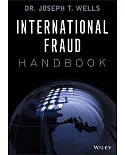Street vending represents a significant share of the urban informal economy. Poverty and high levels of unemployment in Nairobi City have seen the number of women street vendors increase as
they take up street trading as a means of survival and a livelihood strategy. However, there is limited understanding who the socio-economic characteristics of the women vendors, challenges
they experience and the effects of the regulatory framework on their activity. This study used a human rights perspective to examine the situation of women street vendors because policies
dealing with street trading should be based explicitly on the norms and values set out in the international law of human rights so as to promote and protect the rights of women street vendors.
Data was collected from women street vendors who were purposively selected from the streets using interview schedules while interview guides gathered data from key informants in the public and
private sectors. Data analysis employed quantitative techniques on the questionnaires and hypothesis testing and qualitative methods for content analysis.





















